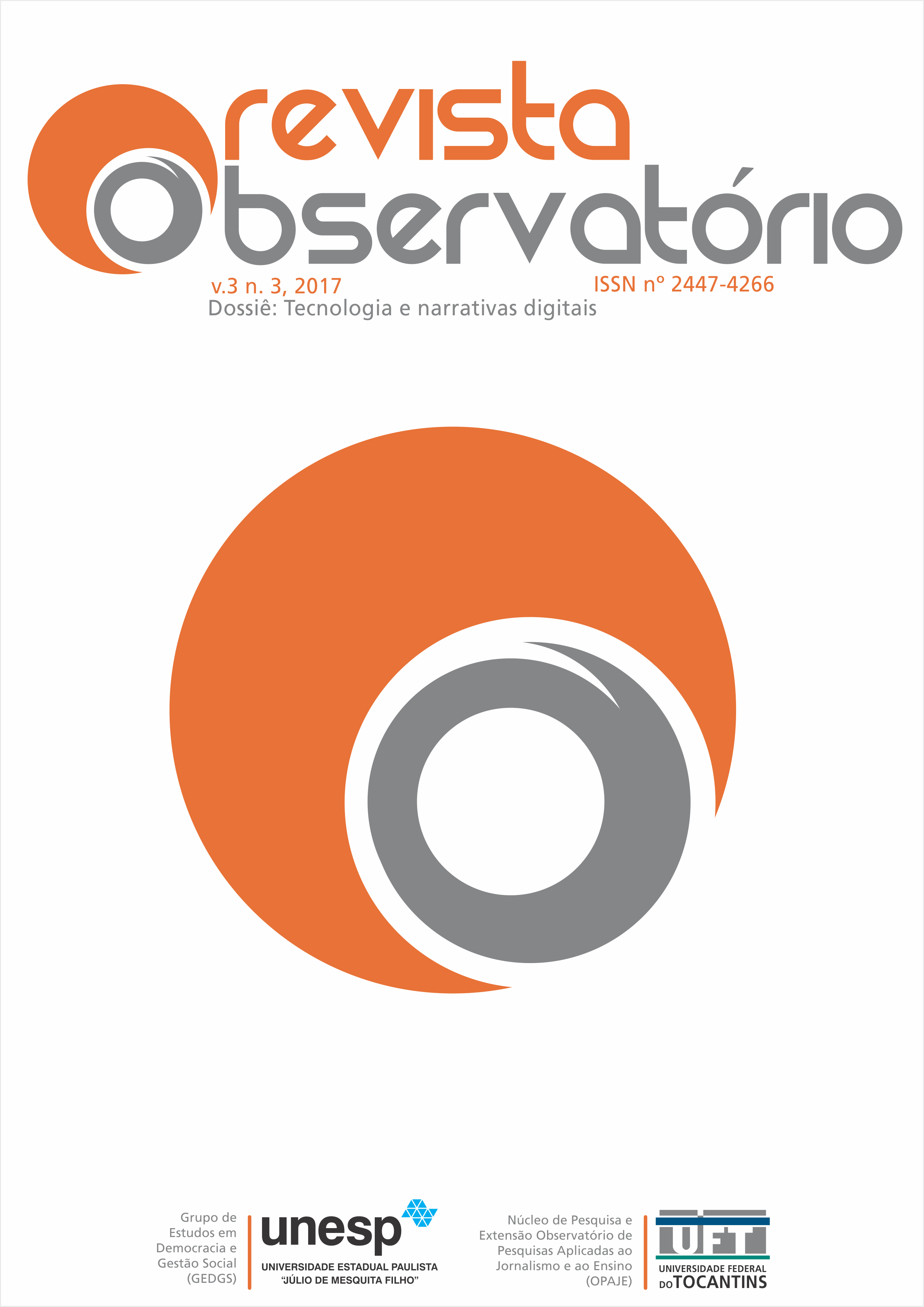THE POLICY MODEL FOR THE INFORMATION SOCIET OF BRAZIL
DOI:
https://doi.org/10.20873/uft.2447-4266.2017v3n3p207Keywords:
Impacts of ICT, Public policy, Technology and work, Inequality of access, Ubiquitous communicationAbstract
Developing countries have committed to participate in the Information Society, recognizing its importance for the economical, social and political development of a nation. This article analyzed the Political Model of Brazilian Information Society Program - SocInfo, that had sharply initiated in the beginning of this century. The implementation of the Program had advances and setbacks, such as the low political articulation, being justified due to the effervescence provoked for the strong presence of ICT, leading the discovery of new ways of life. It is demonstrated that the appropriate information use is a key piece for citizens to be un active agent inside the Information Society. It is confirmed that internet in 21st Century turned to be the most important feature in the contemporary society, and the Web ends up making the rights achievement, when to citizen is permitted to access the offered services by the marked, government, such as education, health, communication, and safety. We can affirm that the matter of substance is the employment of the ones who are more or less on the margins of a Postmodern Society, once they stayed out of this process, in certain way, they are willing to change the course of ICT, and to modulate the innovation. From now on, having wealth and services will not be more important then the feelings of a more collective rights, such as sustainability of environment, that receives power with the support of social networks.
Downloads
References
ANTUNES, R. Os sentidos do trabalho: ensaio sobre a afirmação e a negação do trabalho (4th ed.). São Paulo: Boitempo Editorial. 2001.
BAUMAN, Zygmunt. Modernidade Líquida. Rio de Janeiro. Jorge Zahar Editor. 2001.
BELL, D. The Coming of Post-Industrial Society. A Venture in Social Forecasting. Nova York: Basic Books. 1973.
BRASIL. Sociedade da Informação no Brasil – Livro Verde. Brasília: Ministério da Ciência e Tecnologia. 2000. Disponível em http://www.mct.gov.br/index.php/content/view/18878.html.
BRASIL. Livro Branco: Ciência, Tecnologia e Inovação. Brasília: Ministério da Ciência e Tecnologia. 2002.
CASTELLS, M.; FERNANDEZ-ARDÈVOL, M.; QIU, J. L.; SEY, A. Comunicación móvil y sociedad. Una perspectiva global. Ariel-Fundación Telefónica. 2007. Disponível em http://www.eumed.net/libros/2007c/indice.htm. Acessado em: 29 de outubro de 2012.
CASTELLS, M. Redes de Indignação e esperança: movimentos sociais na era da internet. Rio de Janeiro: ZAHAR. 2013.
COSTA SANTOS, P.L.V.A. da; CARVALHO, A.M.G. de. Sociedade da Informação: avanços e retrocessos no acesso e no uso da informação. Informação & Sociedade: Estudos, João Pessoa, v.19, n.1, p. 45-55, jan./abr. 2009.
KUMAR, K. Da Sociedade Pós-Industrial à Pós-moderna – Novas teorias sobre o mundo contemporâneo. Rio de Janeiro: Jorge Zahar E. 2006.
MASI, D. O Futuro Chegou – Modelos de vida para uma sociedade desorientada. Rio de Janeiro: Casa da Palavra. 2013.
MEDEIROS NETO, B; MIRANDA, A. Aferindo a inclusão informacional dos usuários de telecentros e laboratórios de escolas públicas em programas de inclusão digital brasileiro. Informação & Sociedade: Estudos, João Pessoa, v. 19, n. 3, p. 109-122, set./dez. 2009.
MEDEIROS NETO, B. Avaliação dos impactos dos processos de inclusão digital e informacional nos usuários de programas e projetos no Brasil. Tese (Doutorado). Brasília: Faculdade de Ciência da Informação, UnB. 2012.
PASSARELLI, B. Literacias emergentes nas redes sociais: estado da arte e pesquisa qualitativas no Observatório da Cultura Digital. Em PASSARELLI, P.; AZEVEDO, J. (Orgs.). Atores em rede – olhares luso-brasileiros. São Paulo: Editora Senac. 2010.
SANTAELLA, Lucia. Comunicação ubíqua – Repercussões na cultura e na educação. São Paulo: Paulus. 2013.
SORJ, B. brasil@povo.com: a luta contra a desigualdade na Sociedade da Informação / Bernardo Sorj. – Rio de Janeiro: Jorge Zahar ED.; Brasília, DF: Unesco. 2003. Disponível em: http://www.bernardosorj.com/pdf/Brasil_@_povo_com.pdf. Acessado em: 02/12/2016.
SORJ, B. Latin America’s Elusive Democracies. [s.n], The Edelstein Center for Social Research. (E-Books Series 2, May 2007). Acessado em: 02/12/2016. Disponível em: http://static.scielo.org/scielobooks/kqbg9/pdf/sorj-978859966221 .pdf.
Downloads
Published
How to Cite
Issue
Section
License
[PT] Autores que publicam nesta revista concordam com os seguintes termos:
1. Autores mantém os direitos autorais e concedem à revista, sem pagamento, o direito de primeira publicação, com o trabalho simultaneamente licenciado sob a Creative Commons Attribution License (CC BY-NC 4.0), permitindo o compartilhamento do trabalho com reconhecimento da autoria do trabalho e publicação inicial nesta revista.
Leia todos os termos dos direitos autorais aqui.

